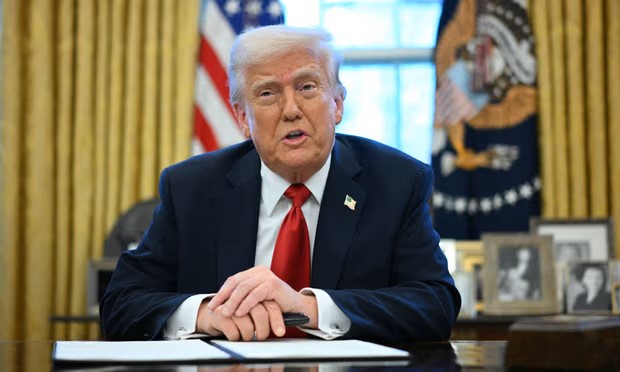The imposition of new tariffs on Nigerian exports by the United States, under the “Make America Wealthy Again” initiative spearheaded by then-President Donald Trump, sent ripples of concern through the Nigerian economy. The decision, met with widespread condemnation from the European Union and other exporting nations, marked a departure from decades of established free trade practices that had shaped global commerce since the Second World War. These tariffs threatened to disrupt established trade relationships and undermine the competitiveness of Nigerian products in the lucrative US market. The Nigerian government, recognizing the potential economic fallout, expressed its concerns through the Minister of Industry, Trade and Investment.
Nigeria’s exports to the US, averaging $5-6 billion annually over the preceding two years, were predominantly comprised of crude petroleum, mineral fuels, oils, and gas products, accounting for over 90% of the total export value. This heavy reliance on oil exports made Nigeria particularly vulnerable to fluctuations in global oil prices and trade policies affecting the energy sector. While other exports, such as fertilizers, urea, and lead, contributed to the remaining 10%, their relatively smaller share meant that any significant disruption to these sectors would have a less pronounced impact on the overall trade balance. Nevertheless, the new tariffs posed a threat to Nigeria’s efforts to diversify its export portfolio and reduce its dependence on oil revenue.
The non-oil sector, although representing a smaller portion of Nigeria’s exports to the US, faced significant challenges due to the newly imposed tariffs. These exports, including agricultural products like live plants, flour, and nuts, as well as some manufactured goods, were often previously exempt under the African Growth and Opportunity Act (AGOA). The AGOA, a US trade act enacted in 2000, aimed to assist the economies of sub-Saharan Africa and improve economic relations between the United States and the region. The removal of these exemptions through the new tariffs meant that Nigerian businesses exporting these goods would face increased costs and potentially lose market share to competitors from countries that enjoyed more favorable trade terms with the US.
The potential 10% tariff on key non-oil export categories threatened to erode the price competitiveness of Nigerian goods in the US market. This posed a serious challenge to businesses, particularly small and medium-sized enterprises (SMEs), that had built their business models around the AGOA exemptions. These businesses, often operating on slim margins, faced the prospect of rising costs, reduced profitability, and uncertain buyer commitments. The tariffs also threatened to hinder Nigeria’s broader economic diversification agenda, which aimed to reduce dependence on oil and promote growth in other sectors like agriculture and manufacturing.
The Nigerian government acknowledged the potential negative impacts of the tariffs, particularly on the non-oil sector. The Minister of Industry, Trade and Investment emphasized the need to enhance the quality, control, and traceability of Nigerian exports to meet international standards and increase market acceptance in other global economies. This strategy aimed to mitigate the impact of the US tariffs by diversifying export destinations and ensuring that Nigerian products could compete effectively in other markets. The government’s response underscored the need for a proactive approach to strengthening and diversifying the Nigerian economy in the face of evolving global trade dynamics.
The US tariff decision underscored the interconnectedness of global trade and the potential for unilateral actions by major economies to disrupt trade flows and impact developing nations. The Nigerian government’s response reflected an understanding of these dynamics and a commitment to strengthening its own economic resilience through diversification and enhanced quality control measures. The episode served as a reminder of the importance of international cooperation and predictable trade policies for promoting sustainable economic growth and development.














